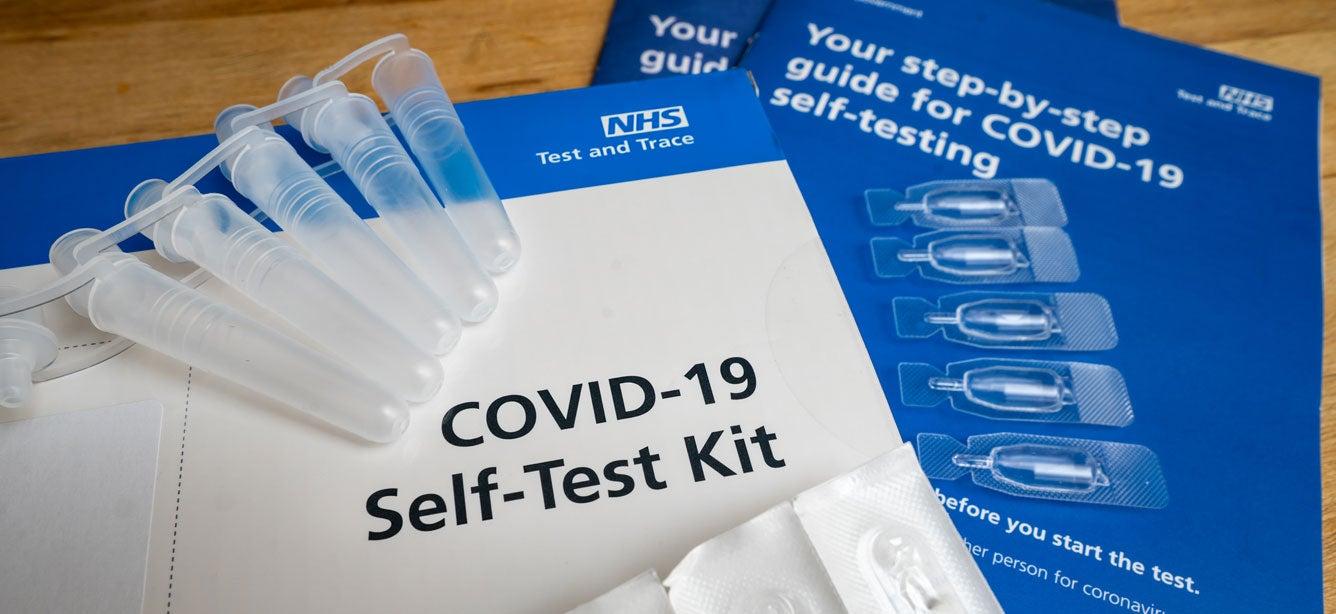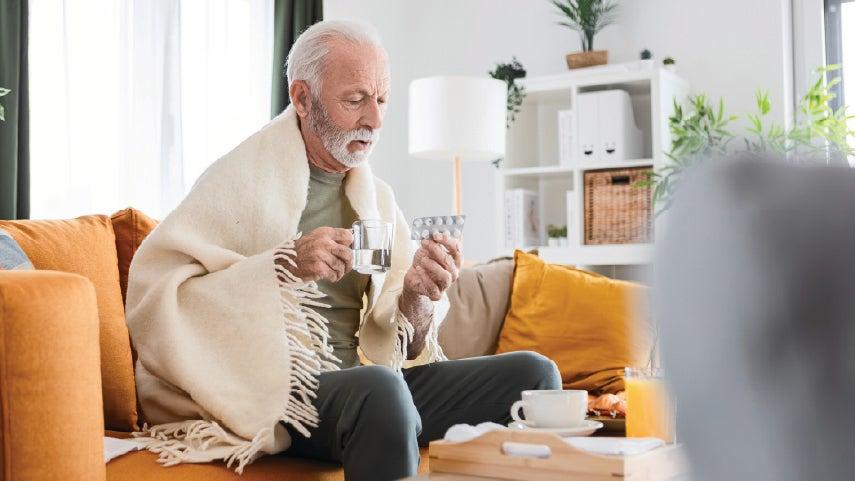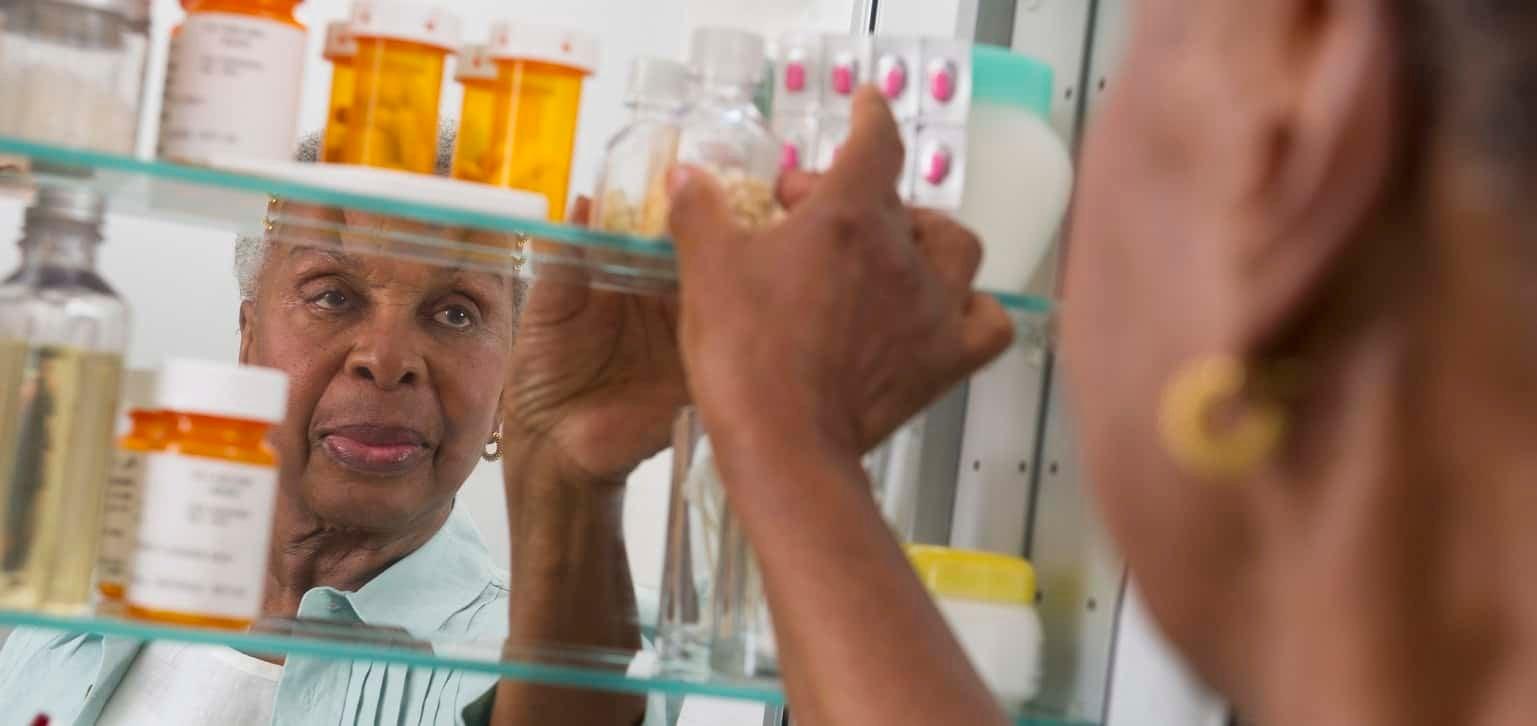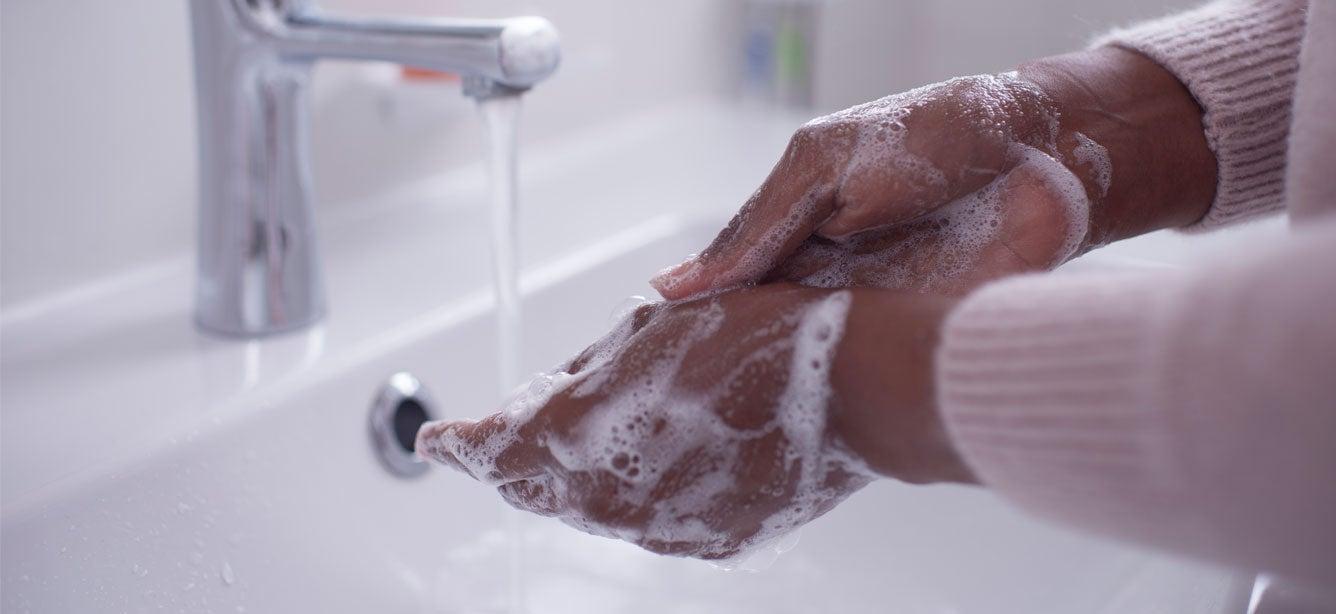
Related Topics
COVID testing continues to be a powerful tool for containing the spread of the virus and getting the treatment we need if we do get sick. This guide is designed to help you determine when and where to get tested—and what to do if you test positive.
Does Medicare cover COVID tests?
Original Medicare still covers COVID testing with no cost-sharing (no deductible, coinsurance, or copayment) under Part B when the test is ordered by a physician or other health care practitioner. Original Medicare does not cover over-the-counter (OTC) at-home tests anymore.
Medicare Advantage plans must continue to cover COVID PCR and antigen tests, but cost sharing may apply. Contact your plan to learn more about costs and to find out if at-home tests are covered.
But first, it’s important to understand the different types of COVID tests used to detect an active infection.
What are the two main types of COVID tests for seniors?
- PCR (polymerase chain reaction) test: PCR tests (also called nucleic acid amplification tests, or NAATs) are the most reliable type of COVID test and are better at finding the virus than rapid antigen tests. A health care provider or technician collects your sample (usually via a swab inserted into your nose) and sends it to a lab, with results coming back in up to three days. Some locations can do these tests on-site and give results sooner.
- Antigen tests (or "rapid tests"): COVID antigen tests are used at testing sites and are available over the counter for home use. Like the PCR test, samples are collected via a nasal swab. The sample is processed through a small cartridge, similar to a home pregnancy test, and the results can be viewed within 15 minutes. Antigen tests are considered less sensitive than PCR tests and are more likely to produce false negative results. But in people with COVID symptoms, they can be a useful tool for confirming a current infection.
To be sure you don’t have COVID, the U.S. Food and Drug Administration (FDA) recommends taking two rapid antigen tests (if you have symptoms) or three tests (if you don’t), with each test taken two days apart. One PCR test (NAAT) can also be used to confirm the result of a rapid test.
When should you get tested for COVID?
According to CDC, you should get tested if you:
- Have symptoms of COVID or another respiratory illness
- Were recently exposed to someone currently sick or recovering from being sick with COVID or a respiratory virus
- Have risk factors for severe illness, including being age 65+ and or having a disability or compromised immune system
What about testing before travel? Most countries and airlines have lifted their COVID entry restrictions and testing requirements. But if you're showing signs of illness, testing can give you peace of mind.
Where can older adults find COVID tests?
COVID testing options include:
- Local pharmacies. Call your nearest pharmacy or visit their website to learn more about what they offer. Many pharmacies have ample types of at-home tests available for $10-20/test. They also may have new at-home tests that can test for both flu and COVID at the same time in stock.
- Your primary care physician. Call your doctor's office and see if they have any same- or next-day appointments for testing if you're feeling under the weather. If you have Medicare, lab-based tests ordered by a physician, physician assistant, pharmacist, or other authorized health care professional are available at no cost to you.
- Community health centers. Your local health center can be a convenient way to get COVID testing. They'll handle the work of determining if your health insurance plan covers the cost of testing and whether there are any out-of-pocket costs. Find a health center near you.
- Urgent care clinics. Beyond treating minor illnesses and injuries, many urgent care centers offer COVID testing. Some allow you to conduct a virtual or phone visit with a provider first. If they determine you need to get tested, they’ll help you book an appointment. Be sure to call ahead to inquire about testing procedures before you visit your local clinic.
Can I still get free COVID tests anywhere?
The federal government no longer offers free COVID tests through the mail. But you might still be able to find them elsewhere. Some other options are:
- Check with your local health department on where free or low costs tests are available.
- Medicare beneficiaries can get free lab tests for COVID when it is ordered by a health care provider and the test is done at a laboratory or doctor’s office. Medicare does not cover the costs of rapid home tests.
You’ve tested positive for COVID. Now what?
A positive test means the virus was found, and you have—or recently had—an infection.
How long you are contagious with COVID varies for everyone. According to the latest CDC guidance, once you've felt better and have been fever-free for at least 24 hours, you are typically beginning to become less contagious. But it can take a few more days for your body to totally shed the virus. Over the next five days, take precautions to avoid getting others sick:
- Practice good hand hygiene by covering your mouth and nose when coughing or sneezing, wash your hands frequently, and disinfect high-touch surfaces, like doorknobs and light switches.
- Avoid crowded areas.
- Ventilate your home as much as possible (e.g., open windows if weather permits).
- Wear a well-fitting mask when you can’t avoid other people in public or in your house.
During isolation, you should:
- Monitor your symptoms. Seek medical attention immediately if you experience trouble breathing or other warning signs.
- Separate yourself from other household members as much as you can, including pets. Use a separate bathroom if you are able to. Don’t share personal items like eating utensils, cups, and towels.
Should you test again before leaving isolation?
Testing is not required to leave isolation. But if you have at-home tests on hand, they can be helpful for determining whether you can still spread the disease to others. If you don't have access to rapid COVID tests during your isolation period, you can simply follow the guidance above for returning to normal activities.
At-home rapid tests are a good indicator of whether you are sick with COVID at any given time. They will typically not continue to show a positive result if you are no longer contagious. But if you are using at-home tests to decide whether to resume regular contact with others, use caution, as false negatives are possible.
If you have access to a home rapid (antigen) test, you can use it toward the end of your isolation period if you want to. Use it only if your symptoms are improving and you’ve been fever-free for 24 hours. If the result is positive, continue to isolate. If it is negative, do a repeat test 48 hours later to be sure you will not get your friends, family, or community members sick. This is especially important if people in your household are at increased risk for severe illness (e.g., are pregnant or immunocompromised).
For more details on testing and isolation, visit the CDC website.
Need help getting a COVID test?
Depending on where you live, you may qualify for assistance in making COVID test appointments and getting to and from testing locations. You may even be able to get food delivered to your home if you’re in isolation. Some tips for getting the help you need:
- If you have trouble booking appointments online, contact the pharmacy or other testing site directly to request assistance. You might also ask a tech-savvy family member, friend, or neighbor to help you.
- Use Eldercare Locator to find transportation and other support services.
- Visit Meals on Wheels for meal delivery options in your ZIP code. Services like Instacart allow you to order groceries and personal/health items online from area markets and have them delivered right to your door.
- Dial "211" on your phone to be connected with support resources for older adults in your geographic area.
Vaccination is your best defense against COVID
For the 2025-2026 season, CDC guidance makes COVID vaccination an individual choice you make with help from your doctor.
For older adults, the benefits of vaccines are clear: they help prevent severe illness, hospitalization, and death and preserve independence and quality of life. Vaccination is especially vital for people age 65+ and those living with underlying conditions like diabetes or heart disease.
NCOA recommends older adults discuss their personal health risks with their provider and to get the updated 2025-2026 COVID, flu, and RSV vaccines for the best protection.
Want more information on COVID and older adults? Visit our COVID-19 Safety and Protection resource hub.


